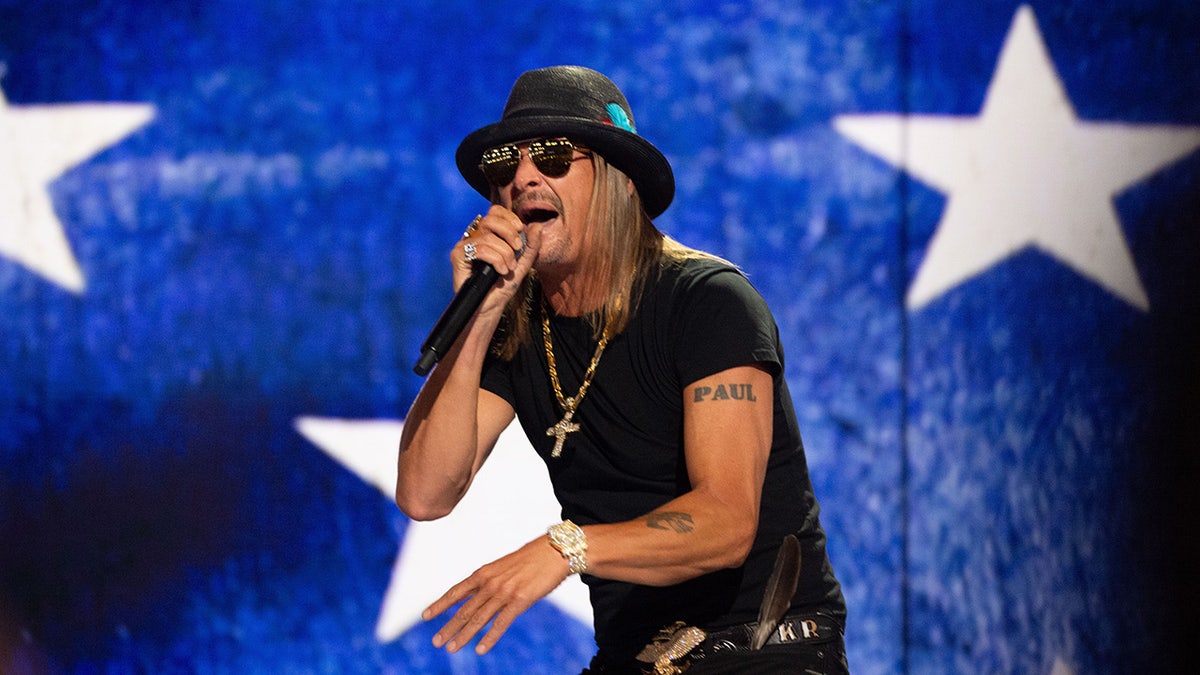
In an unprecedented turn of events, Kid Rock’s performance at the Republican National Convention (RNC) has skyrocketed to the top, claiming the title of the most-watched show of all time with over one billion views. This stunning achievement surpasses even the legendary viewership numbers of the Super Bowl and the World Cup, making it a landmark moment in both entertainment and political history.
Kid Rock, the once rebellious ’90s rocker, has made a spectacular comeback, capturing the attention of a global audience. The RNC’s decision to feature him as a headline performer has sparked considerable discussion and debate. Questions abound—how did Kid Rock, known for his party anthems and controversial persona, become the centerpiece of such a significant political event?
The Unlikely Star
Kid Rock’s selection as a performer at the RNC might seem unusual, but it injected a dose of flamboyant energy into the proceedings. His performance was anything but ordinary, filled with pyrotechnics, star-spangled theatrics, and his trademark cowboy hat. As he belted out hits like “American Bad Ass,” the audience was treated to a spectacle that transcended traditional political discourse.
For a moment, the critical issues of the day—healthcare, the economy, and national security—took a backseat to the glitz and glamor of Kid Rock’s electrifying show. This performance exemplified America’s enduring love for nostalgia and spectacle, blending politics with entertainment in a way that only Kid Rock could.
A Perfect Match?
In many ways, Kid Rock and the RNC were a match made in headline heaven. His rebellious spirit and anti-establishment lyrics seemed to resonate with a certain segment of the political landscape. The performance highlighted a shift in how politics is presented and consumed in America, with entertainment value often overshadowing substantive discussion.
The RNC’s embrace of Kid Rock’s rock-and-roll ethos speaks to a broader trend in American politics—prioritizing spectacle over substance. The merging of these two worlds creates a peculiar narrative where a former reality TV star president and a ’90s rock icon share the stage, turning political conventions into must-watch TV events.
A Cultural Commentary
Kid Rock’s performance at the RNC serves as a cultural commentary on the state of American politics. The event was less about policy and more about creating a visually captivating show. The focus on pyrotechnics and patriotism over detailed political discourse reflects a growing trend of prioritizing entertainment in the political arena.
Donald Trump, known for his flair for the dramatic and his penchant for celebrity endorsements, played a significant role in orchestrating this event. His understanding of what captures the American public’s attention has transformed political events into grandiose spectacles. However, this focus on entertainment raises questions about the depth and seriousness of political discourse in contemporary America.
Conclusion

Kid Rock’s record-breaking performance at the RNC is a testament to the evolving nature of political engagement in the United States. It underscores a shift towards entertainment-driven politics, where the line between showmanship and governance continues to blur. As America watches this unfolding reality TV-like political landscape, one thing is clear: the fusion of politics and entertainment is here to stay.
In the end, Kid Rock’s performance was more than just a concert; it was a reflection of a society increasingly drawn to spectacle. While the world watches in awe, the critical question remains—can America find a balance between captivating performances and meaningful political discourse? For now, we sit back and watch the circus unfold.




